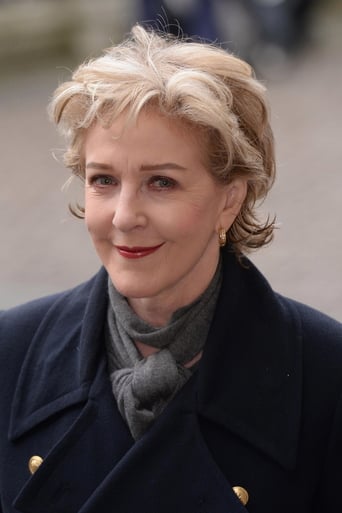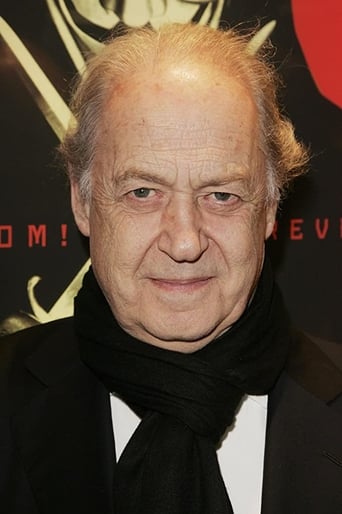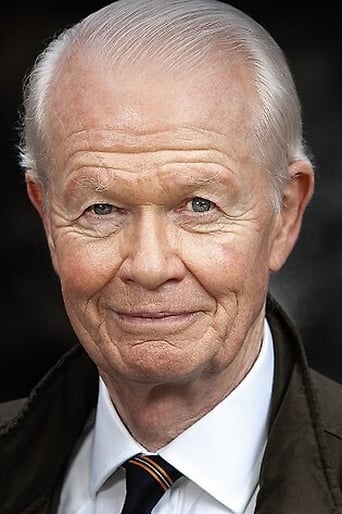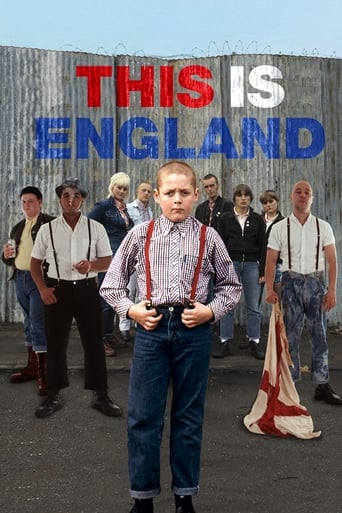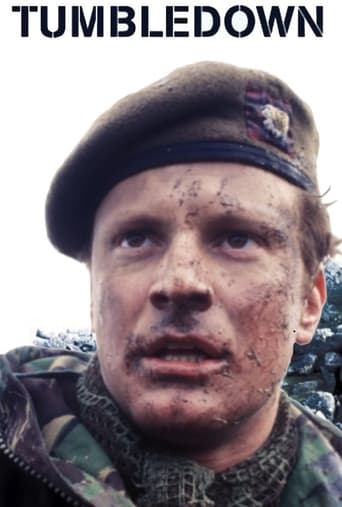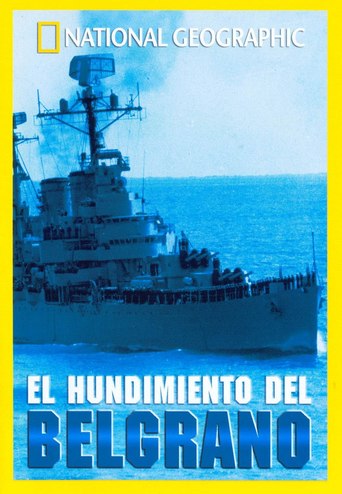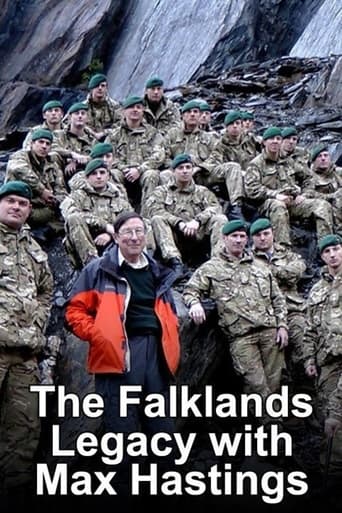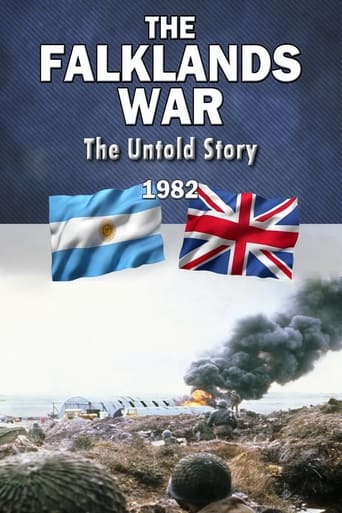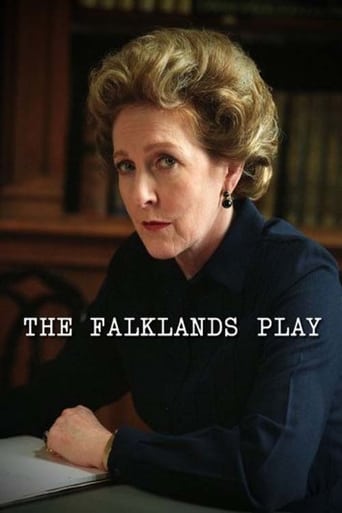
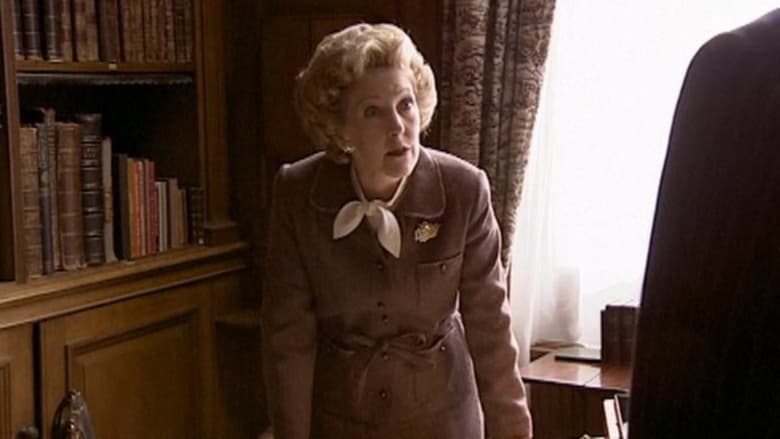
The Falklands Play (2002)
The Falklands Play is a dramatic account of the political events leading up to, and including, the 1982 Falklands War. The play was written by Ian Curteis, an experienced writer who had started his television career in drama, but had increasingly come to specialise in dramatic reconstructions of history. It was originally commissioned by the BBC in 1983, for production and broadcast in 1986, but was subsequently shelved by Controller of BBC One Michael Grade due to its alleged pro-Margaret Thatcher stance and jingoistic tone. This prompted a press furore over media bias and censorship.The play was not staged until 2002, when it was broadcast in separate adaptations on BBC Television and Radio.
Watch Trailer
Cast


Similar titles
Reviews
Much has been written about alleged "pro-Thatcher" approach of The Falklands Play, and it certainly was well acted. It would have been interested seeing it performed on stage rather than in a studio like here.I think though a follow-up play is necessary where it details what motivated the British Government to exclude their amputee soldiers (who lost their limbs in the Falklands) from the victory parades.I think a follow-up play is necessary where it details how Mrs Thatcher could support the totalitarian Pinochet regime who were hardly democratic, even though Mrs Thatcher fought to restore democracy in the Falklands.I think a follow-up play is necessary explain why this script wasn't shopped to ITV or Channel 4 when the BBC weren't so keen on it.I think a follow-up play is necessary to debunk the myth that the 1983 general election was an endorsement of Britain's involvement in the Falklands War, given the Conservative Party's national vote actually decreased from its 1979 share.I think such a follow-up play might be too much and too politically incorrect for the champagne conservatives. A follow-up play would be way too politically incorrect.
The title of this review is aimed squarely at those who object to certain omissions from the film. If you want 100% historical accuracy watch a documentary. If you want world class acting with a riveting plot watch this. Frankly though the film is sufficiently accurate that all but those with a political axe to grind against Mrs. Thatcher ought to be satisfied. Having watched numerous documentaries on the subject myself I found nothing to complain about in the film. For sure there's a spin to it - the vast majority of war films have one.The film is simply top notch entertainment. The cast is a who's who of the cream of English talent and that shows through in spades. You'll go a long way to see a better cast do a better job.I called this a war film though in reality it's about the background to and political side of a war rather than the military side. Does it favour Mrs. Thatcher? - certainly it does. Then again the actual war favoured her too. She got the calls right and the people voted for her because of it, so in such a respect the film reflects reality. If you hate Mrs. Thatcher, and there are many who do, then that hatred will likely be strong enough to obscure the film so don't bother with it. Such a hate that's sufficient to rejoice at her death will certainly beat a few actors no matter how good their efforts. If you're a supporter or a neutral then put this in your must watch list of British films.
Detailing how the government of UK Prime Minister Margaret Thatcher dealt with the Falkland Islands War of 1982, The Falklands Play has a long history. One of the most controversial productions ever commissioned by the BBC, The Falklands Play was unproduced for nearly two decades when it was finally aired on BBC Four in 2002. Originally unproduced due to being deemed to be too pro-Thatcher and jingoistic in its tone, The Falklands Play is an intriguing example of historical drama and the controversy it can cause.The film certainly has a fine cast. Patricia Hodge excels as Thatcher or at the very least playing the Thatcher portrayed in the script. Hodge's Thatcher is a strong willed woman who refuses to back down under any circumstances. The supporting cast includes strong performances from James Fox as Foreign Secretary Lord Peter Carrington, Clive Merrison as Defence Minister John Nott, Colin Stinton as US Secretary of State Alexander Haig, John Woodvine as Admiral Sir Terence Lewin and Tom Chadbon as Admiral Sir John Fieldhouse. Each of their performances, and those of much of the rest of the cast, gives the film a strength that it needs.The production values of The Falklands Play are strong as well. Melanie Allen's production design captures the real life settings of the film including an excellently done set of the House of Commons. The film's cinematography is exceptional as well with its cinema verite approach. The result is that the film is given a strong documentary feel to the entire film, giving the viewer the sense of watching history unfolding before them. The film also makes strong use of documentary footage from the time as well, mixing it skillfully into the drama. Like the performances, these elements give the film a strength that it needs.The script by Ian Curteis is at the heart of the film. The script after all was the single most controversial aspect of the production for almost twenty years. Back in the 1980s, the BBC deemed the script to be too pro-Thatcher and jingoistic in its tone. Looking at the film itself, it is very easy to see how that came about. The strong willed portrayal of Thatcher and her handling of her the situation is certainly pro-Thatcher. Also the film's portrayal of the decisions leading to the sinking of the Argentinian warship the General Belgrano, one of the most controversial events of the war, can certainly be seen to be pro-Thatcher. Surprisingly, the script used in the film isn't even the one originally written in the 1980s as it removes all the scenes involving the Argentinian Junta and the Pope. One suspects that the reaction the film would have gotten in the 1980s when it was supposed to have aired would have been similar to the reception that the 2003 Showtime film DC 9/11: Time Of Crisis (a film about President George W. Bush's handling of the 9/11 attacks and the lead up to the invasion of Afghanistan) received when it aired: being seen overwhelmingly as a piece of propaganda. The Falklands Play definitely isn't that but it is all too easy to see how it could have been seen as such.The Falklands Play is an interesting film. It has strong performances from its entire cast and also features strong productions values especially with its cinematography. The script however is the film's most interesting point as it was the source of controversy that kept the film from originally being made to begin with. With hindsight, it is easy to see why the script proved so controversial at the time and why it could remain so today. The Falklands Play therefore is an interesting film about a controversial war and a intriguing piece of historical drama.
This is a deeply flawed portrayal of the Falklands crisis, though arguably it's no more flawed than portrayals which unthinkingly demonise the Thatcher government. Propaganda is still propaganda, regardless of which side it comes from.The Falklands Play makes many errors and omissions which undermines its relevance: It ignores the prevailing British domestic political situation. Thatcher was struggling in the polls, there was disquiet over the wisdom of choosing such a right-wing leader both within the Conservative party and in the country as a whole, and the economy showed no sign of sustained recovery from the problems of the late 1970s.Thatcher is rightly portrayed as someone who had delusions of Churchillian leadership, however, as the play portrays her as focused and eloquent in the way Churchill was, she was in reality as desperate to retain the idea of British international power and empire as Churchill was. And just as wrong. Such irrational motives will always be wrong.The idea that Thatcher would cite Argentina's human rights record as a reason to act aggressively is unlikely given the US support for Latin America's quasi-fascist dictators (Operation Condor and more). The international fight against Communism was far more important, especially in the US, than a petty squabble over some desolate rocks filled with little Englanders. Thatcher would know that Argentina's dictatorship was US-backed, just as was Chile's and a handful of others, and their unethical methods were tolerated in order to prevent the spread of Communism.The play shows Argentina to be exclusively aggressive, intransigent and scheming. Appeasers or doubters are portrayed as woolly-minded, weak or foolish (especially Francis Pym). Another reviewer suggested this was a 'love letter' to Thatcher, in that it portrayed her in almost exclusively positive light: deliberate, strong, decisive, thoughtful. All of these two dimensional portrayals serve only undermine the writer's intention (whatever that might be) and makes the whole easy to dismiss.There are comments here that suggest a black and white version of events suggesting Argentina, in order to quell internal disquiet about the ruling dictatorship, invaded Las Malvinas, a long-standing dispute with Britain, to unite their nation and distract from domestic problems. Whilst this is true, the play's wilful ignorance of Britain's readiness to pay only token and cursory attention to US diplomatic efforts gives an unbalanced picture.The Falklands conflict was, like most international disputes, very complicated, shrouded in doubt and manipulation. It was the product of both domestic realpolitik, international image, and personal ego. The Falklands Play prefers to give the impression that it was some brave, patriotic, moral battle of good (Britain) against evil (Argentina). Writers and film-makers have learned that you can't even portray the Second World War in such simplistic terms any more.Thatcher was a shrewd political operator who saw an opportunity to depict Britain as the injured party in a minor dispute. She and her government undoubtedly played their part in amplifying and escalating a situation which could have been resolved without the loss of life which the dispute ultimately cost, for domestic reasons. Anyone who can remember the tub-thumbing, jingoistic nonsense which accompanied much of the coverage of the conflict will know just how well it played for the struggling Thatcher government. Ultimately, both Thatcher and Galtieri used the islands as a pawn for domestic political reasons. In reality, it should never have been allowed to get to the stage of armed conflict, and Britain, as much as Argentina, must share the blame for it doing so.


